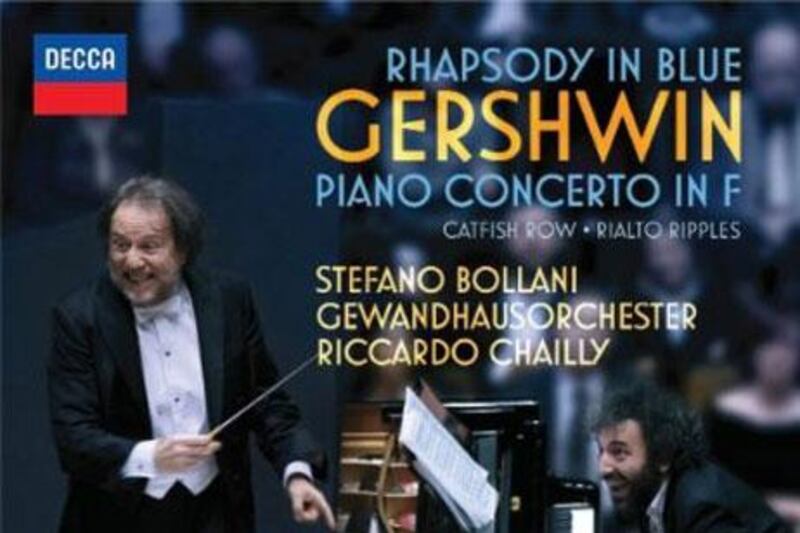Gershwin: Rhapsody in Blue; Piano Concerto in F; Porgy & Bess Suite Stefano Bollani (piano), Riccardo Chailly (cond), Gewandhausorchester Leipzig
(Decca)
There can be no composer more redolent of the idea of a growing metropolis than George Gershwin, whose symphonic-jazz compositions conjure up visions of American cities rising, streets thronged with people and all the characters and quirks to be found therein. That makes his music feel as relevant as ever to anyone living in the UAE, where the thrill of seeing the landscape change and the many cultures collide must be something akin to living in New York in the 1920s and 1930s. Although they are here played with a perfectly apt swing and bluesy loucheness by the jazz pianist Stefano Bollani, it should not be forgotten that these are highly virtuosic pieces of the classical canon, and Richard Chailly's Gewandhausorchester Leipzig contributes a precise and dynamic accompaniment to the works. In some moments, Bollani's looseness does highlight the much more academic approach of the orchestra, with the instrumental solos not always matching his piano's jazz technique. As for the works, the Rhapsody in Blue needs no introduction, and is wonderfully rendered here - the crisp orchestral part most punchily played by the brass. The Piano Concerto will be known to fans of the film musical as the concerto played by Oscar Levant in a dream sequence in the Vincente Minelli film An American in Paris. A cheery little ragtime number, Rialto Ripples is fun and played with an almost bebop panache that saves it from feeling dated. And the timeless, and in its day groundbreaking, 1935 "African-American" jazz opera Porgy and Bess is offered as an orchestral suite prepared by Gershwin after the opera closed early on Broadway, and was renamed Catfish Row by his brother Ira. While many of the tunes, such as Summertime, remain familiar to us, what is interesting here is the complexity and menace of much of this symphonic music, beyond the show tunes. It is certainly easy to take Gershwin's facility with melody and adoption of a folk idiom, jazz, as an indication of popular tendencies, but, as this recording proves, his power and sophistication as a composer should not be underestimated.





